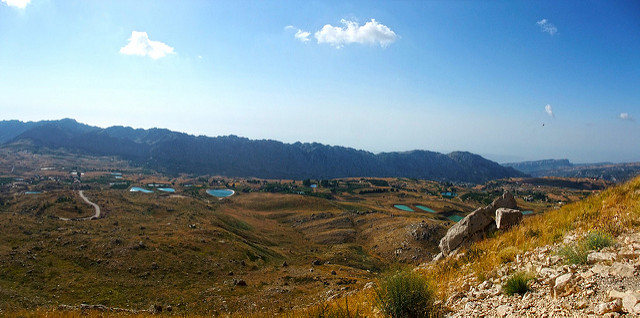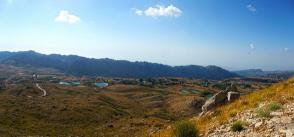
Detectors in the dirt
“Agriculture consumes quite a high amount of water, of fresh water, and this is the target of this project. We are trying to raise what we call in agriculture lately ‘water productivity.”
(Ihab Jomaa, the Department Head of Irrigation and Agrometeorology at the Lebanese Agricultural Research Institute)
People who tend crops in Lebanon and people who tend particle detectors on the border of France and Switzerland have a need in common: large-scale humidity and temperature monitoring. A scientist who noticed this connection is working with farmers to try to use a particle physics solution to solve an agricultural problem.
Farmers, especially those in dry areas found in the Middle East, need to produce as much food as possible without using too much water. Scientists on experiments at the Large Hadron Collider want to track the health of their detectors—a sudden change in humidity or temperature can indicate a problem.
To monitor humidity and temperature in their detector, members of the CMS experiment at the LHC developed a fiber-optic system. Fiber optics are wires made from glass that can carry light. Etching small mirrors into the core of a fiber creates a “Bragg grating,” a system that either lets light through or reflects it back, based on its wavelength and the distance between the mirrors.
Scientists at the University of Sannio and INFN Naples developed a material for the CMS experiment that could turn the temperature sensors into humidity monitors as well. The material expands when it comes into contact with water, and the expansion pulls the mirrors apart. The sensors were tested by a team from the Experimental Physics Department at CERN.
Read the full article by Jameson O'Reilly via symmetry magazine.
[Photo by Paul Saad | Flickr]







